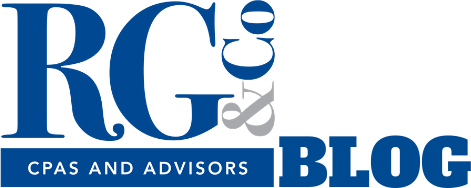By Patrick Goodwin, CPA and Stephanie Smith, CPA
Nobody likes to hear the word “fraud,” especially when the fraud is associated with your own business. Fraud can occur to any person, at any company, at any time. However, fraud is more likely to occur when there are breakdowns in internal accounting controls, and this issue is only compounded the larger a company grows if a strong internal control structure isn’t put in place during the early stages of a business. As accountants who work with clients in a variety of industries, we’ve evaluated numerous internal control structures and witnessed their importance in ensuring that a company continues to grow and thrive. The goal of this article is to provide the reader with key concepts designed to safeguard financial resources and enhance the reliability of financial reporting. Reliable financials can be used to help secure funding from lenders and promote compliance with laws and regulations.
Effective Internal Controls Start at the Top
As a store owner, whether you own one, five, or a hundred stores, you need to ensure that the appropriate control environment is in place – that starts with setting the tone at the top. This is the foundation of internal control from which the other components can be built. Setting the control environment starts with ownership creating a culture that fosters honesty, integrity, and a commitment to ethical behavior. As an owner, you set the tone by hiring, developing, and retaining competent employees and holding these employees accountable for their responsibilities with the company.
Understand Your Specific Risks
Once the control environment is set, you need to understand the different risks associated with your business and how these risks can affect your company’s accounting and financial reporting. This involves identifying business or operational risks, including fraud risks, determining how those risks can impact your company’s accounting and financial reporting, and defining how those risks will be managed to ensure the company continues to meet its accounting and financial reporting objectives. It’s important as an owner to specify your goals and objectives with enough clarity to identify risks and assess which risks will significantly impact your accounting and financial reporting.
Communication is Key
Now that the control environment has been set and the risks have been identified, the next step is communicating this information to the right individuals at the right time. This is done by clearly defining employees’ roles and responsibilities within the company so that the proper individuals are performing their assigned duties. This lessens the chance of miscommunication or misinformation. Your external auditor can be an important resource in evaluating your existing internal control structure and recommending any changes or improvements.
Monitor and Report
Lastly, you want to ensure that the internal control structure you have in place is monitored Lastly, you want to ensure that the internal control structure you have in place is monitored regularly. This is done to ensure that the controls are operating effectively and that changes can be made should a deficiency in internal controls be identified. This function can be performed by the store managers and reported up to the store owners as a part of any month-end procedures.
Internal Control Systems Are Not One-Size-Fits-All
Each business has its own unique operating environment, and each internal control system should be tailored to meet your specific needs and adjusted as your business continues to grow. We understand that the rent-to-own industry is a unique business sector with its own intricacies, making a strong internal control system critical to the success of your business. Implementing effective internal controls is pivotal for financial health and success, especially in the rent-to-own industry, where physical inventory relevant to your customer base drives the success or failure of the company. Internal controls not only help to mitigate risk, but they also improve operational efficiency, financial reporting accuracy, and investor confidence in your business.
Seek Professional Guidance
As the importance of financial oversight continues to grow, it’s also important to emphasize the importance of strong internal controls in your rent-to-own business. At Rivero, Gordimer & Company, we have a team of CPAs who are experts in the RTO industry. We are available to assist you with evaluating your internal controls and designing a structure that meets the unique needs of your RTO company. If you have any questions, please reach out to us at 813-875-7774 and ask to be connected to one of our RTO committee members.




